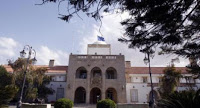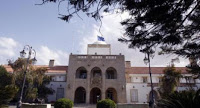The Court adjudicated an appeal seeking the annulment of a decision of the Council of Ministers to reject an application for a planning permission, by way of derogation from the provisions, and ruled that the appeal should succeed and the contested decision should be annulled. On behalf of the applicant was presented the lawyer A. Angelidis and on behalf of the Attorney General the lawyer of the Republic A. Stavrinos.
The decision is considered particularly important, as it is now a res judicata, which can be used in dozens of other cases of a similar nature, which are already pending before the Supreme Court and, as a result, annul decisions of the Council of Ministers, only on its basis. presence of government officials who were not to attend the meetings. There is, however, the possibility of appeal.
Composition of an administrative body
The Court refers in its decision to Article 2 of the General Principles of Administrative Law Laws 1999, which defines the "administrative body", considering that the Council of Ministers is a collective administrative body and its legal establishment is a necessary condition for its legal operation. The participation in the session of such a body, a person, even one, foreign to its legal composition, directly affects the legality of its formation and makes its decisions invalid, due to lack of competence, is further mentioned. As the Court points out, "even the mere presence of a third party in a decision has a catalytic effect on its validity."
Accordingly, the Court ruled that the presence of Undersecretary to the President Tito Christofides at the meeting at which the decision to withdraw the application was taken, and the presence of Mr Christofides and Government Spokesman Stefanos Stefanos at the meeting at which the decision was rejected, was rejected. "Constituted a violation of the principles of operation of the collective body", as it has been codified and legislated.
The absent
In addition to the illegal formation of the Council of Ministers, the Court also notes that the contested decision suffers and is therefore subject to annulment, as, while the Ministers of Foreign Affairs, Defense and Trade were absent during the first session, they took part in the second and crucial session, and had not - again, in violation of the codified principles - been informed of what was said during the first session. They were also not asked whether they agreed with the referral decision.

